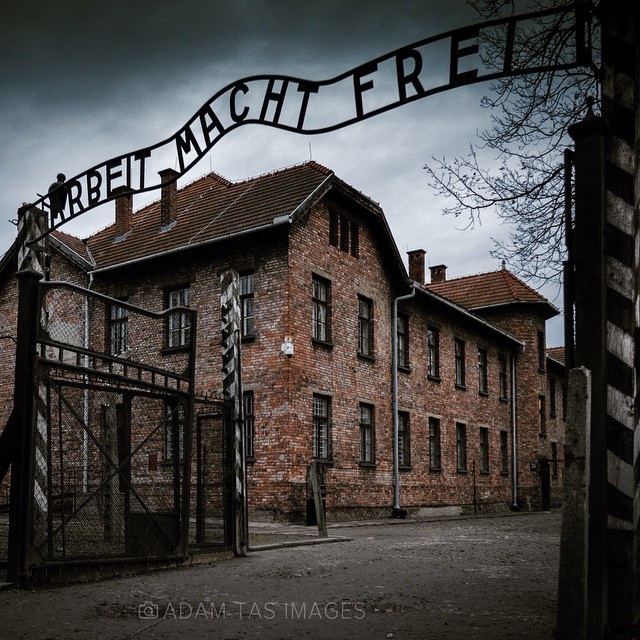| In Germany, a court is reminding everyone that World War II and Nazi atrocities are not so far in the distant past. That is a good thing, especially for a young generation that needs to appreciate lessons once learned through sacrifice, suffering and death. What remains to be seen is whether our collective efforts to never forget the Holocaust translate into a recognition of similar things happening today. So far, the answer isn’t clear. On trial is Oskar Groening, a 93-year-old man who was the accountant at Auschwitz, marking the first time someone not directly responsible for murder has been tried in connection with the deaths at Nazi concentration camps. |
| | Germany and Jewish Nazi hunters have done a remarkable job of relentlessly tracking down and prosecuting people connected with the Holocaust. News reports say 11 more such investigations remain open, despite the advanced age of the people being sought. But while the trial proceeds, ISIS reminds the world almost daily that religious genocide and brutality did not die with Hitler in the mid-1940s. Recent videos showing the execution of Ethiopian Christians in Libya are just the latest example. They add to what the Pew Research Center found a year ago was a growing trend of religious hostility in one-third of the 198 nations and territories it studied. More recently, Pew released data showing the harassment of Jews “reached a seven-year high” in Europe. This was nearly matched by the harassment of Muslims in the same countries. In the face of these attacks, the Obama administration has been relatively silent, despite some occasional pronouncements. In high-level negotiations with Iran over nuclear proliferation, the United States apparently is not requiring an official recognition of Israel nor an end to the persecution of Christians that were detailed in a U.N. report last year. The U.S. ambassador at-large for religious freedom, Rabbi David Saperstein, seldom is out front denouncing this worldwide trend. Against this near silence, one positive development is worth mentioning. In Washington earlier this month, a House subcommittee approved the Frank Wolf International Religious Freedom Act of 2015. If it passes, it would require all ambassadors and Foreign Service officials to be trained on how to promote religious freedom abroad. It would create a committee to develop a global strategy for making religious freedom an emphasis in foreign policy. And it would give the president power to sanction individuals for abusing religious freedom. It is a ray of light in an otherwise disappointingly tepid response from Washington, but it may not have the power to move a reluctant administration. Juxtapose this with how, for 70 years, Nazi hunters have not allowed their targets to rest. In Germany, Groening’s opening day testimony showed why. According to CBS News, he described watching a guard kill a baby in order to stop it from crying — graphic testimony that did far more than any dictionary could to define the true meaning of atrocity. Groening has acknowledged his own moral culpability. Whether he deserves to be found guilty for the 300,000 counts of accessory to murder for which is charged remains up to the court. On the subject of genocide, however, the number 300,000 has a coincidental ring to it. Looking back about 20 years, former President Bill Clinton lamented to CNBC that if he had acted sooner to intervene in the 1994 mass murder of Rwandans, he could have saved 300,000 lives — about one-third of those who eventually died. It’s better to prevent atrocities than to spend decades hunting down culprits. But nations need political will to intervene in distant parts of the globe. Often, this is difficult without a clearly identifiable national interest. Recent history teaches that matters of moral interest quickly can become matters of national interest. When governments, or terrorists who control territory, begin attacks on conscience and religious freedom, they seldom stop with those who are easiest to reach. Meanwhile, the suffering of anyone for his or her beliefs is an affront to all who believe or who value the freedom to do so. The least this nation can do is protest loudly, so the world is reassured we are paying attention, and so history’s lessons truly have meaning. |


 RSS Feed
RSS Feed

